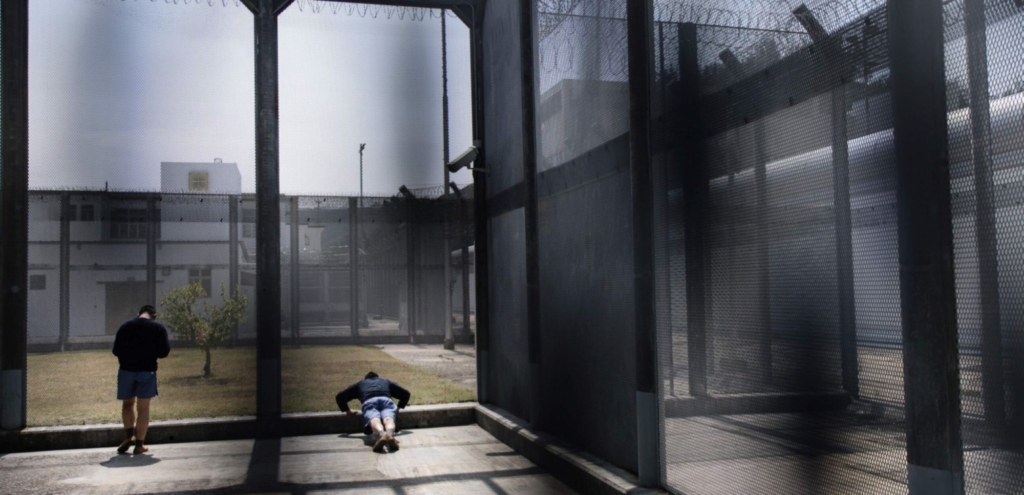*By: Alex Neve, secretary-general of Amnesty International Canada’s English branch, and Béatrice Vaugrante, director-general of Amnesty International Canada’s Francophone branch
Progress in ending the brutal worldwide scourge of torture requires ensuring accountability for this terrible crime. Torturers and those who aid and authorize torture must face justice. Survivors of torture and the families of men and women who suffer and, sadly, often die under torture must receive redress for what they have endured.
So obvious. But so universally neglected.
That is why the welcome news that Canadian citizens Abdullah Almalki, Ahmad El Maati and Muayyed Nureddin are receiving a long-overdue apology and compensation for the many ways that Canadian action and inaction set them up to be tortured in Syria (and also Egypt in Mr. El Maati’s case) is an important step in the right direction.
The torture, illegal imprisonment and other human-rights violations these men went through took place between 2001 and 2004. A judicial inquiry, headed by former Supreme Court of Canada Justice Frank Iacobucci, examined the cases in 2007 and 2008. His report, documenting numerous examples of “deficient” conduct by Canadian officials that contributed to these many human rights violations, has been public record for more than eight years. UN human rights bodies highlighted concerns about these cases in 2005 and called for resolution in 2012.
Against that timeline, it is truly a disgrace that rather than receive prompt redress, they were forced into contentious litigation; for many long years under the previous government and an additional year under the Trudeau government.
That is the past now. But it must also be the beginning of a meaningful commitment to unequivocally standing against torture.
Here are six steps forward:
First, there are others whose claims for redress for national-security-related human-rights violations, including torture, have been contested by government lawyers for far too long. That includes Omar Khadr, Abousfian Abdelrazik and the men who have been subjected to the Kafkaesque world of immigration security certificates and the threat of being deported to torture. They too deserve justice.
Second, we must make sure it can’t happen again. Central to what happened to Mr. Almalki, Mr. El Maati and Mr. Nureddin, similarly in the case of Maher Arar, was sharing inflammatory and unverified intelligence, and receiving back intelligence from foreign partners, completely unconcerned about risks of torture. That has been codified now in ministerial directives that allow intelligence to be shared and received, in exceptional circumstances, even if it is tainted by or might lead to torture. That must change.
Third, Canadian laws are still equivocal when it comes to torture. Most notoriously our immigration laws allow deportation to torture in exceptional circumstances. But there is no exceptional justification for torture in international law. The ban on deportations to torture must be absolute.
Fourth, these three men went through their nightmare, in part, because there was ineffective review of the agencies involved. The government’s current initiative to establish a parliamentary national security review committee is important, but it is not enough. There is urgent need for comprehensive, expert, integrated and independent review over all of Canada’s national security agencies.
Fifth, Canada’s voice is needed to lead efforts to end torture worldwide. Steps finally under way to accede to the 2002 torture prevention treaty, the Optional Protocol to the Convention Against Torture, which enables prison inspections to stamp out torture, are encouraging and should be expedited. That will set Canada up to be a more credible global champion for ending torture.
Finally, Canada has to grapple with the fact that concerns about torture seem likely to become a major problem in our relationship with the United States. President Donald Trump is convinced that torture works, though others in his Cabinet reportedly don’t share his enthusiasm. It is confused at best; ominous at worst. At all levels possible, including Prime Minister Justin Trudeau and his ministers of Foreign Affairs and Public Safety, the Trump White House needs to hear that Canada will not countenance any nod to torture in our important intelligence relationship.
It has taken far too long to remedy the torture these three men endured. There can be no further delay in reinforcing Canada’s stand against torture, at all times and against all people.
*Originally published in the Globe and Mail on March 20, 2017.




















